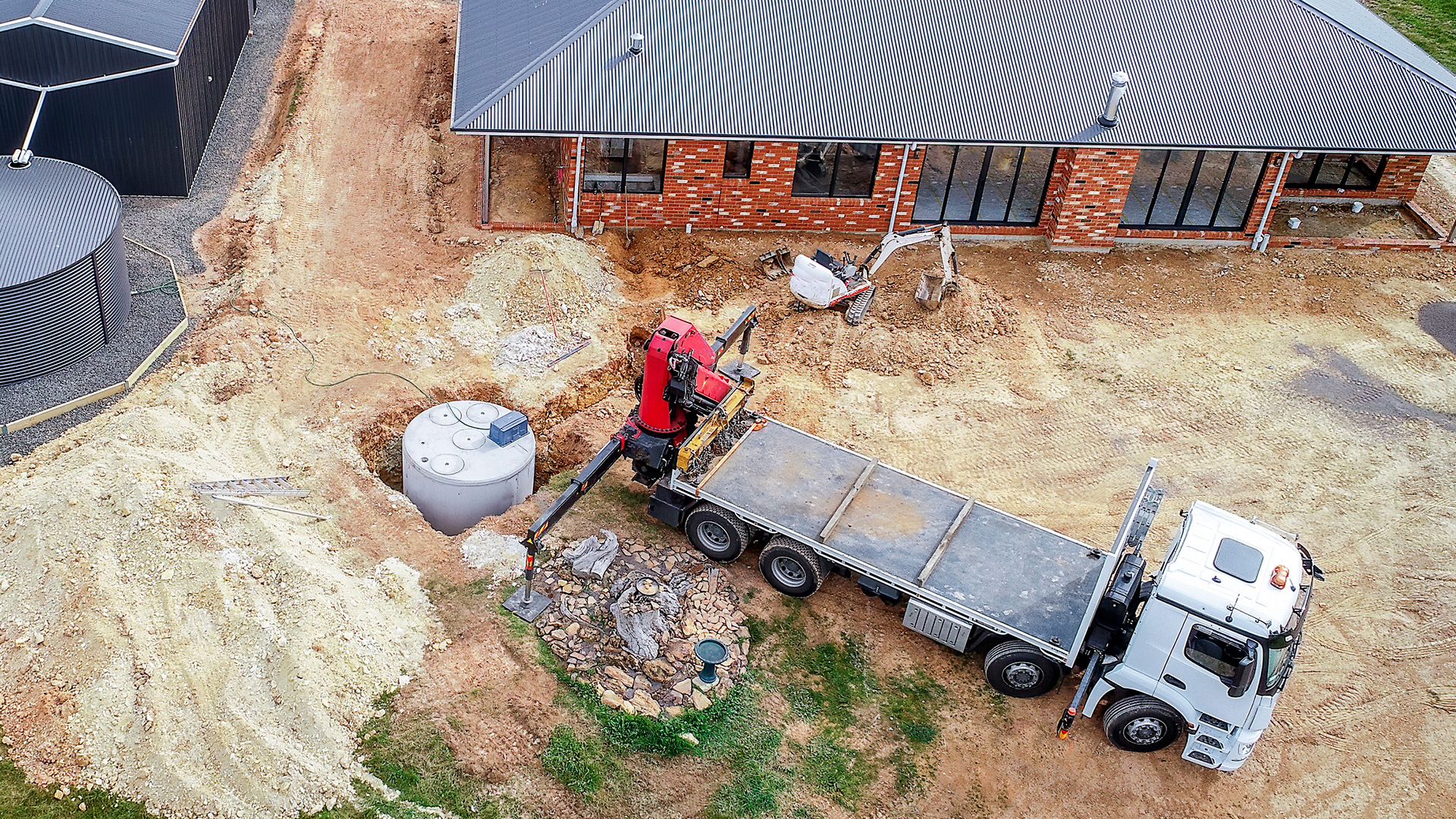As a homeowner in Northern Virginia with a septic system, you’re the first line of defense for its health. While some basic maintenance tasks are well within your capabilities, others absolutely require the specialized knowledge and equipment of a licensed professional. Knowing the difference is crucial; it can save you significant money, prevent environmental hazards, and ensure your septic system lasts for decades.
Septic System Maintenance Tasks Homeowners Can Safely Perform (DIY)
These are the routine actions that every homeowner in Virginia should do to keep their septic system running smoothly:
1. Water Conservation: This is the easiest and most impactful DIY action. Reduce your household’s water usage by fixing leaky faucets and toilets, taking shorter showers, running full loads of laundry and dishes, and installing low-flow fixtures. Less water going into the system means less strain on your drain field.
2. Smart Flushing & Draining: Be extremely aware about what goes down your drains.
- No Non-Biodegradables: Absolutely avoid flushing “flushable” wipes (they’re not!), paper towels, feminine hygiene products, dental floss, cotton balls, diapers, or cigarette butts. These items cause clogs.
- Minimize Grease and Food Scraps: Never pour cooking grease down the drain. Use drain screens to catch food particles, and go easy on your garbage disposal – or better yet, avoid it if you have a septic system.
- Avoid Harsh Chemicals: Limit the use of excessive bleach, aggressive drain cleaners, and strong disinfectants. These can kill the beneficial bacteria in your septic tank that are essential for breaking down waste.
3. Drain Field Protection:
- Know Your Location: Keep a map of your septic tank and drain field.
- No Heavy Loads: Never drive or park vehicles, RVs, or heavy equipment over any part of your septic system.
- Strategic Landscaping: Plant only grass or shallow-rooted groundcovers over the drain field. Keep trees and shrubs with aggressive root systems far away (at least 30 feet).
- Divert Water: Ensure downspouts, sump pump discharge, and other drainage sources direct water away from the drain field to prevent oversaturation.
4. Basic Visual Inspection: Periodically check the area around your septic tank and drain field for any warning signs:
- Unusually lush or soggy spots.
- Standing water.
- Foul odors.
- Slow drains or gurgling toilets inside your home.
When It Is Essential to Call a Professional Septic Service
For any tasks involving the internal workings of your septic system, specialized equipment, safety protocols, or regulatory compliance, professional help is non-negotiable. For homeowners in Northern Virginia, this means contacting a licensed and experienced company like Great Falls Septic Service.
1. Septic Tank Pumping: This is the single most crucial professional maintenance task. Only trained professionals have the equipment to safely and effectively pump out the accumulated sludge and scum from your tank. Most Virginia households need pumping every 3-5 years, depending on usage.
2. System Inspections:
- Routine Inspections: Beyond a simple visual check, a professional inspection involves opening the tank, checking baffles, assessing sludge and scum levels, inspecting the drain field for signs of failure, and evaluating the overall system health. This is vital for early problem detection.
- Real Estate Inspections: When buying or selling a home with a septic system in Virginia, a professional septic inspection is often required and always highly recommended.
3. Diagnosing Problems: If you notice any of the persistent warning signs (slow drains, odors, wet spots), one of our professionals can accurately diagnose the underlying issue, which could range from a simple clog to a failing drain field.
4. Repairs and Replacements: Any repairs to pipes, baffles, pumps, or the drain field, as well as full system replacements, require specialized knowledge, heavy equipment, and often permits from your local Virginia health department. Attempting these yourself can lead to dangerous situations, environmental contamination, and extremely costly mistakes.
5. Hydro-Jetting and Snaking: For stubborn clogs in your septic lines that plungers can’t clear, our professionals use high-pressure water (hydro-jetting) or specialized augers (snaking) to clear blockages safely and effectively.
6. Alternative System Care: If you have an aerobic treatment unit or another alternative septic system common in some parts of Virginia, these often require specialized regular maintenance and inspections by our certified technicians.
When Expertise Matters Most
Being a homeowner with a septic system in Northern Virginia means taking an active role in its care. While your daily habits and routine checks go a long way, knowing when to call in the experts is truly the key to long-term septic health. For the complex tasks—like pumping, detailed inspections, and any repairs—trust a licensed professional from Great Falls Septic Service. We will provide the specialized care your system needs, ensuring it runs efficiently and reliably for decades, giving you peace of mind in your Virginia home.


